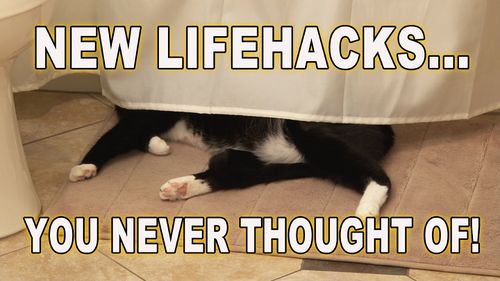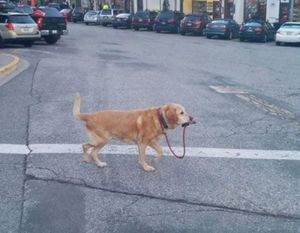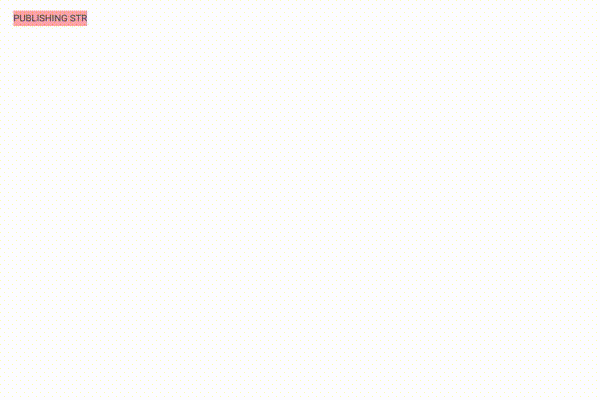Category:Start up, Burn out: Life Hacks
Start-Up, Burn Out: Life Hacks
While technology promises to speed up and simplify what we do, our workload increases and diversifies. Why is that? Is it because we are tirelessly entrepreneurial beings, so that as soon as a new horizon opens up, we can't wait to move towards it? Or is it that the efficiency required by the systems we inhabit imposes the toll of adapting to them? Or rather is it their very inefficiency that we have to make for?
Whether our shifting environment works properly or not, we optimize our ways of managing what's around us. This activity has a lasting effect on how we see ourselves: if we are able to manage (which means both being in charge and coping) we consider ourselves valuable, independent subjects: masters of our own life. Some of these become masters in a general sense: they go on to give public advice and teach other people how to regain autonomy.
In this context, the notion of autonomy is ambiguous. Managing change requires adaptation, which seems at odds with autonomy. And yet one is as free as they can adapt, no matter how precarious what to adapt to is. This is a matter of framing: adaptation is not framed as a passive mode of adjusting to outside conditions, but as an attempt to take one's life in their own hands, to "pull oneself by one's own bootstraps", so to speak. Adapting means reinventing oneself on a daily basis, tweaking yesterday's self so that it can become a better today's self. This is what the imperative of flexibility –and more recently of "resilience"– prescribes: optimal bending as liberation.
Since there is no definitively set norm or standard to fulfill, self-optimization means living a perennial state of exception. To this we oppose exercises, rituals, daily liturgies. We challenge unpredictability with repetition. We can call these exercises anthropotechnics: multimodal techniques aiming at self-improvement. Or, we can call them, more simply, "life hacks". Under the rubric of life hacks we find the the tactic we adopt to find a spot with plug in a café, the imaginative ways to limit our social media use, or the drug we take to feel confident on stage.
Coined in 2004 by tech writer Danny O'Brien, the term "life hacks" originally identified the tips and tricks that "overproliphic alpha geeks" would use to deal with their inbox, schedule, etc. Life hacks were first conceived as ways to increase productivity and efficiency "in all walks of life". The concept inspired the creation of some extremely popular blogs like lifehacker.com and soon became common parlance.
Despite of their origin, life hacks are not necessarily rooted in software, they are simply ways of doing things better and faster crystallized in repeated exercise. But what if life hacks themselves become a burden, instead of a relief on our lives? What if yet another smart shortcut adds up leading to exhaustion and burnout?
This trimester we will use life hacks as a way to explore self-optimization, autonomy and exhaustion in three spheres of daily life where they play a relevant role: the management of time, the use of space, and the relationship with one's own mind.
We will collect existing life hacks related to these areas and we will create our own, with the goal of producing tensions between different modes of living and and disciplining rationales. Can life hacks reject adaptation? Can life hacks be healing? Can they be reflexive? Can they lead to secession or asceticism? Where and how are life hacks performed? By whom and for whom are they conceived?
Each series of life hacks will be documented within a three-modules printed publication that will be presented each time a new module is published. The life hacks related to the first module will be developed in small groups, the ones for the second module will be conceived individually. Finally the life hacks for the third module will be exchanged among students to be performed and reinterpreted.
Resources:
- https://www.nytimes.com/2005/10/16/magazine/meet-the-life-hackers.html
- http://web.archive.org/web/20031024152455/http://www.oblomovka.com/entries/2003/10/22
- https://knowyourmeme.com/memes/life-hacks
- http://conferences.oreillynet.com/cs/et2004/view/e_sess/4802
- https://lifehacker.com/036370/interview-father-of-life-hacks-danny-obrien
Special Issue Guest Editor: Silvio Lorusso
Silvio Lorusso writes texts and makes things that deal with technology, design, education, publishing and the relationship between entrepreneurship and precarity, i.e. entreprecariat.
Silvio is an affiliated researcher at the Institute of Network Cultures of Amsterdam, a tutor at the Royal Academy of Art in Den Haag and a researcher at Willem De Kooning Academy. He’s also a member of varia and part of the editorial board of Italian graphic design magazine Progetto Grafico. His work was presented at Re:Publica (DE), MaXXI (IT), Transmediale (DE), Drugo More (HR), Kunsthalle Wien (AT) Vögele Kultur Zentrum (CH), NRW-Forum (DE), MoneyLab (NL), Impakt (NL), Sight & Sound (CA), Adhocracy (GR). He holds a Ph.D. in Design Sciences from the School of Doctorate Studies – Iuav University of Venice. His writing has appeared in several magazine and publications, including Pagina99, Not, Immaterial Labour Union Zine, Prismo, Modes of Criticism, Printed Web 3, Metropolis M, Progetto Grafico, Digicult, Diid, and Doppiozero. His work has been featured in, among others, The Guardian, The Financial Times, and Wired. Since 2013, he manages the Post-Digital Publishing Archive (p-dpa.net). He lives in Rotterdam and lectures internationally.
Programme
18.09.18
We read the following texts from Silvio as well as Issue #11 from the Pervasive Labour Union Zine:
- http://networkcultures.org/entreprecariat/fake-it-till-you-make-it-genesis-of-the-entrepreneurial-precariat/
- http://networkcultures.org/entreprecariat/what-is-the-entreprecariat/
- http://ilu.servus.at/issue12.html (link to PDF on the side)
We will take 2H + more if needed to discuss these texts, and watch a small video presentation from Silvio.
25.09.18
11-12: Brief introduction of the course, structure, etc.
12-13: Students' introduction
14-15:30: Lecture on the Entreprecariat
16-17: Projection of Mass Entrepreneurship by artist Simon Denny (you can download it here: https://we.tl/t-30AzVP18uA)
Slides: https://cryptpad.fr/slide/#/2/slide/view/VXHRr76i9K2fLii9oADQxfSSWVKua-sqeF4wj8kiHNs/
02.10.18
11-12:30: Discussion on last week's readings and assignments
12:30-13: Practical information on the public program
14-16: First Excursion: WdKA
16-17: (If there's time) Lecture: "Squatting the Continuous Office" pt .1
excursion page: https://pzwiki.wdka.nl/mediadesign/Life_Hacks:_Wdka_Excursion
slides: https://cryptpad.fr/slide/#/2/slide/view/1vOxPY9nW179Kn72GT8ALs4nOa7dtFTRLUlk0eTERUk/
Required reading:
- Bröckling, Ulrich. The Entrepreneurial Self: Fabricating a New Type of Subject. Los Angeles: SAGE, 2016. Chapter 2: Tracing the Contours of the Entrepreneurial Self (Silvio will scan it soon!)File:Chap2.pdf
- Schumpeter, Joseph A. The Creative Response in Economic History The Journal of Economic History 7, no. 2 (1947): 149–59.
- Sennett, Richard. 2015. The Corrosion of Character: The Personal Consequences of Work in the New Capitalism. New York: W.W. Norton. Chapter 1 and 2.
Suggested reading:
- Hardt, Michael, and Antonio Negri. Assembly. New York, NY: Oxford University Press, 2017. Chapter 9: Entrepreneurship of the Multitude
- Ventura, Raffaele Alberto. The Leisure Class Disease
03.10.18
11-12:30: Presentations of Life Hacks 12:30-13: Updates on the public program 14-15: Lecture: "Squatting the Continuous Office" pt .1 15-17: Self-organization: Publishing streams
Readings
- Florida, Richard. The Rise of the Creative Class Revisited: And How It’s Transforming Work, Leisure, Community and Everyday Life. New York: Basic Books, 2014. Introduction, chapter 10 and chapter 14.
- Kitchin, Rob, and Martin Dodge. Code/Space: Software and Everyday Life. Cambridge, Mass.: MIT Press, 2014. Introduction.
16.10.18
11:00-13:00: X Theses on Life Hacks: Collective Writing Session (https://pad.xpub.nl/p/x-theses-on-life-hacks) 14:00-14:30: Evan Roth on Hacking: Screening: https://www.youtube.com/watch?v=2DSe4o45i3o 14:30-15:30: X Theses on Life Hacks: Collective Writing Session (https://pad.xpub.nl/p/x-theses-on-life-hacks) 15:30-17:00: Publishing Streams Update
https://pad.xpub.nl/p/x-theses-on-life-hacks
Readings
- Hackathons as Co-optation Ritual: Socializing Workers and Institutionalizing Innovation in the “New” Economy. Sharon Zukin, Max Papadantonakis. *Precarious Work*. 2017, 157-181
- Aronoff, Kate. “Thank God It’s Monday.” Dissent Magazine, 2017. https://www.dissentmagazine.org/article/wework-sharing-economy-labor-company-town.
31.10.18
>> Presentation of 'Ten Thesis On Life Hacks'
'Life Hacks: Space' event at Varia
Varia event /
Varia archive
06.11.18
11:00-13:00: Update on Life Coach developments and work on its look and feel
14:00-14:30: Announcements (documentation, readings, upcoming event, final event)
14:30-15:30: Lecture "Shouldn't you Be Working?"
15:30-17:00: Screening 'The Secret': https://vimeo.com/242483750
https://pad.xpub.nl/p/burnout-06.11.18
https://cryptpad.fr/slide/#/2/slide/view/pOquQu+4wDHLJOqnAq-I-PuF3qcON4QPBGohuTExysI/
13.11.18
12:00-13:00: Discussion on the readings 14:00-15:00: Update on Life Coach developments 15:00-16:00: Art and Meditation 16:00-17:00: Development Assistant / Rehearsal performance
https://pad.xpub.nl/p/life_hacks-13.11.18
Slides: https://cryptpad.fr/slide/#/2/slide/view/uufNSevTdu9uhhsmZhllzY1yVOrHqROp3vYwdw3vFF8/
Readings
- Gregg, Melissa. “The Productivity Obsession.” ';The Atlantic, November 13, 2015. https://www.theatlantic.com/business/archive/2015/11/be-more-productive/415821/.
- Steyerl, Hito. “The Terror of Total Dasein.” DIS Magazine (blog), 2014. http://dismagazine.com/discussion/78352/the-terror-of-total-dasein-hito-steyerl/. Video of lecture
20.11.18
11:00-12:00: Discussion on the readings 12:00-13:00: Update on Life Coach developments 14:00-15:00: Rehearsal performance 16:00-17:00: Split: 1) design of the life coach; 2) editing the scripts
https://pad.xpub.nl/p/life_hacks-20.11.18
Readings
Matthew Fuller: How to Sleep: The Art, Biology and Culture of Unconsciousness (2018) https://monoskop.org/log/?p=20460 (2 sections of your choice)
Projects
Ten Thesis On Life Hacks
Iris
General Bibliography
Links
Pads
https://pad.xpub.nl/p/burnout-18.09.18
https://pad.xpub.nl/p/burnout-25.09.18
https://pad.xpub.nl/p/burnout-02.10.18
https://pad.xpub.nl/p/Life_Hacks_06_10_18
https://pad.xpub.nl/p/burnout-11.10.18
https://pad.xpub.nl/p/x-theses-on-life-hacks
https://beta.etherpad.org/p/22_10_18_recovered
https://pad.xpub.nl/p/Life_Coach_Ideas
https://pad.xpub.nl/p/life-hacks-27-11-18
https://pad.xpub.nl/p/life-hacks-event
https://pad.xpub.nl/p/event_abstract
Slides
https://cryptpad.fr/slide/#/2/slide/view/VXHRr76i9K2fLii9oADQxfSSWVKua-sqeF4wj8kiHNs/
https://cryptpad.fr/slide/#/2/slide/view/1vOxPY9nW179Kn72GT8ALs4nOa7dtFTRLUlk0eTERUk/
https://cryptpad.fr/slide/#/2/slide/view/pOquQu+4wDHLJOqnAq-I-PuF3qcON4QPBGohuTExysI/
https://cryptpad.fr/slide/#/2/slide/view/uufNSevTdu9uhhsmZhllzY1yVOrHqROp3vYwdw3vFF8/
Shopping list
electronics
Subcategories
This category has the following 2 subcategories, out of 2 total.
Pages in category "Start up, Burn out: Life Hacks"
The following 23 pages are in this category, out of 23 total.
I
S
T
- User:Tancre/Special Issue 7
- User:Tancre/Special Issue 7/Entrepreneur VS Hacker
- User:Tancre/Special Issue 7/Life Hacks Life Sucks
- User:Tancre/Special Issue 7/What if Shumpeter was a Nazi and his Entrepreneur hides a Far-Right Ideology?
- User:Tancre/Special Isuue 7/On the meaning of Life( Hack)
- Ten Theses On Life Hacks
- The entreprecariat



